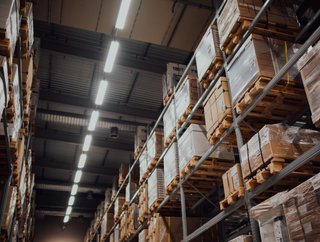E2open: Is Nearshoring the Future of Procurement?

Pawan Joshi, Executive Vice President, Products & Strategy at e2open explains to Procurement Magazine why companies are taking steps to move production and supply from areas like China, and bringing it closer to their home markets.
We’re seeing a move away from global supply chains, with many organisations moving production out of China and closer to home. Why do you think that is?
Amid continuous, large, and small supply chain disruptions, many organisations have moved to reposition their production facilities. Leaders are also bringing supplier and logistics networks closer to customers to increase resiliency and protect competitive positions. However, such re-organisation is costly after years of investments in offshore manufacturing, supplier networks, and supporting logistics infrastructure – and the benefits are hardly instantaneous.
Numerous governments and trade bodies are adopting protectionist policies to safeguard the availability of goods, promote growth in domestic industries, and control the flow of cross-border trade and capital. We’re seeing an increase in programmes that encourage localisation of trade. The EU’s European Chips Act, for instance, aims to double Europe’s share in global semiconductor production by 2030, whilst the Clean Vehicle credit initiative will incentivise the assembly of EVs.

The impact on supply networks
What are the implications of this approach for businesses’ supply networks?
Ernst & Young reports that 24% of survey respondents indicated that government regulations such as tariffs and other restrictions substantially disrupted their organisation’s operations or supply chains, and in recent talks between the US and the UK, government leaders examined the impact of so-called national “subsidy races” and explored alternative ways to jointly safeguard against external threats such as increasing energy prices and sanctions.
To the casual observer, it may seem the wave of globalised supply chains has crested. If so, is protectionism the answer, or does this create new challenges? And how can supply chain leaders remain agile despite the increasing complexity of global trade policies?
Almost every major nation or trade body is considering policies that prioritise local trade, which could alter the supply chain landscape as we know it. New measures and trade schemes from major global players such as the US, EU, and India are designed to mitigate disruptors, boost exports, reduce import dependence, and create jobs. But in pursuing self-preservation, these policies are also building virtual trade walls.
Are there any advantages of moving production closer to home?
Initially, protectionism may appear appealing because, in theory, it should support domestic industries and encourage local trade to thrive. But in reality, we must acknowledge that many countries and organisations still rely heavily on globally dispersed production facilities. Regional "supply concentration” was built from decades of development. The model improved core competencies and achieved economies of scale to enable companies to operate efficiently - semiconductor fabs, mining and refining, and shipping are some examples. Nature also has a role in this regional concentration – raw materials such as lithium, copper, and oil and ingredients like coffee, rice, and sugarcane are not uniformly available worldwide. Though some constraints can be undone with significant investments in time and money, no amount of investment can change where minerals are found naturally and where crops grow.
The challenges of protectionism
What other challenges could a protectionist approach present for organisations?
The challenge is not just on the supply side – even if production could be moved within a country's borders, it does not mean that companies can succeed solely within the national markets. Industries need the global market to be successful. Protectionism cuts both ways – if you pull production out of a country or region, you almost certainly lose the country as a market into which you can sell. Global companies cannot survive without access to international markets.
The sooner we recognise that supply chains will remain global and interconnected because companies need to source and distribute globally, the sooner we can start discussing how to operate within the undercurrents of protectionism.
It’s important to acknowledge that, to some extent, supply networks will retain a global element due to their interconnectedness. As a result, disruptions across the network are a distinct possibility. In an increasingly unpredictable environment, building visibility and resiliency in the supply chain will be more integral than ever. True transparency benefits every stage of the supply chain – from ingredients and components to finished goods and services. Consistent success will stem from genuine investment into technological infrastructure that connects the entire supply chain. Such technologies enable supply chain partners to collaborate seamlessly across multiple tiers, linking distributors, logistics service providers, and retailers.
Make sure you check out the latest edition of Procurement Magazine and also sign up to our global conference series - Procurement & Supply Chain 2024
**************
Procurement is a BizClik brand






